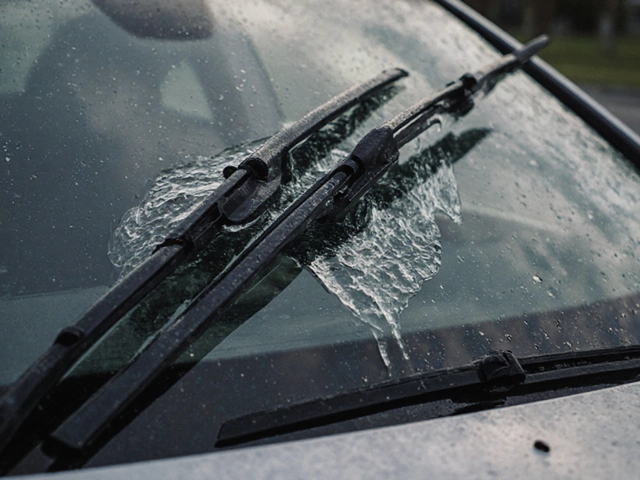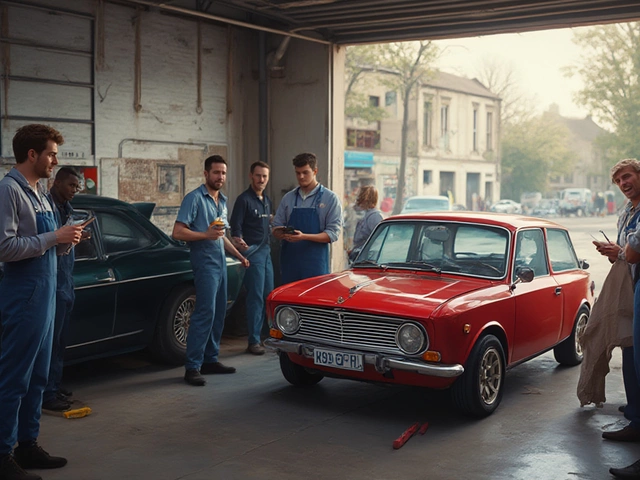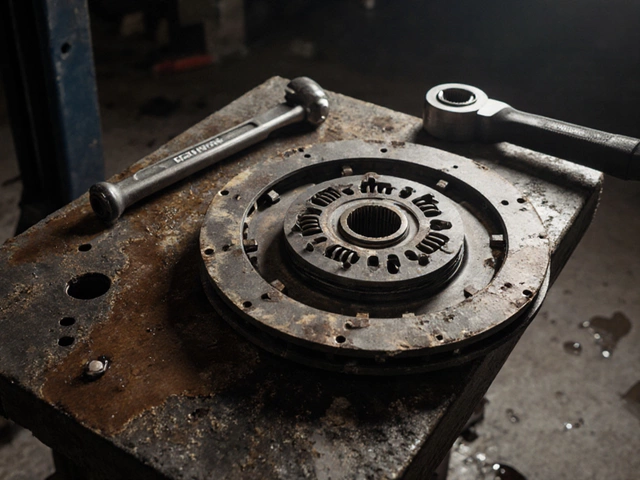Noisy Suspension? What It Means and How to Fix It
Hear a clunk or a squeak every time you hit a bump? That noise is usually a sign that something in your suspension isn’t right. Ignoring it can lead to uneven tyre wear, poor handling, or even a dangerous blow‑out. Let’s break down why the noise happens and what you can do about it.
Common Causes of Suspension Noise
A noisy suspension can come from several parts. Worn or leaking shock absorbers often make a thudding sound when they can’t control the wheel’s movement. Bad bushings – the rubber cushions that hold the arms in place – start to crack and squeak as they lose flexibility. If a control arm or strut mount is bent, the metal will hit the frame and create a loud clank.
Loose bolts are another sneaky culprit. A bolt that’s not tightened enough can let a component shift under load, producing a rattle that gets louder when you turn or brake. Finally, a broken spring will slap against the chassis, especially when you go over potholes. Each of these problems has a distinct noise pattern that can help you pinpoint the fault.
Steps to Diagnose and Fix a Noisy Suspension
First, do a visual check. Look for leaking fluid on shock absorbers, cracked bushings, or broken springs. Push down on each corner of the car; if it bounces more than once, the shocks are likely worn.
Next, go for a short test drive. Pay attention to when the noise occurs – is it only over bumps, during turns, or when braking? A clunk when you turn usually means a bad ball joint or tie‑rod. A squeak while slowing down points to worn bushings or a loose stabiliser bar.
When you’ve narrowed it down, you can decide whether it’s a DIY job or when to call a professional. Replacing a worn bushing or tightening a bolt is often doable with basic tools. For shocks, struts, or springs, a lift and a jack stand are needed, and safety is key – if you’re not comfortable, a garage can handle it quickly.
Cost matters, too. Basic bushing replacements cost around £30‑£70 per corner, while new shock absorbers run £80‑£150 each. If you need a full suspension overhaul, expect a higher bill, but catching the problem early saves you from more expensive repairs later.
After any repair, test the car again. The noise should be gone, and the ride should feel steadier. Keep an ear out for any new sounds; early detection is the best way to keep your suspension healthy.
Remember, a noisy suspension isn’t just annoying – it’s a warning. By listening, inspecting, and acting fast, you keep your car safe, comfortable, and cheap to run. If you ever feel unsure, Northwich Tyres Centre can check your suspension, fit new parts, and get you back on the road with confidence.
 26 June 2025
26 June 2025
Detect Bad Suspension: Signs, Symptoms & How to Check
Learn how to spot the warning signs of a bad car suspension, from bumpy rides to uneven tire wear. Find straightforward tips and steps to check if your suspension needs attention.
Latest Posts
-

Can You Use a 17 Inch Wiper Blade Instead of a 16? Here's What Really Happens
-

Top Tire Brands 2025: Best Choices for Every Driver
-

How to Tell If Your Car Is Low on Oil: A Practical Guide
-

Clutch Kit Labour Cost Explained: 2025 Guide to Clutch Replacement Prices
-

How Often Should a Clutch Be Replaced? Real-World Mileage and Signs of Wear
Tags
- car maintenance
- engine oil
- spark plugs
- brake pads
- engine performance
- vehicle maintenance
- spark plug replacement
- windshield wipers
- fuel pump
- suspension parts
- clutch replacement
- oil change
- clutch kit
- car performance
- air filters
- car suspension
- car radiator
- exhaust systems
- engine misfire
- fuel pump failure

0